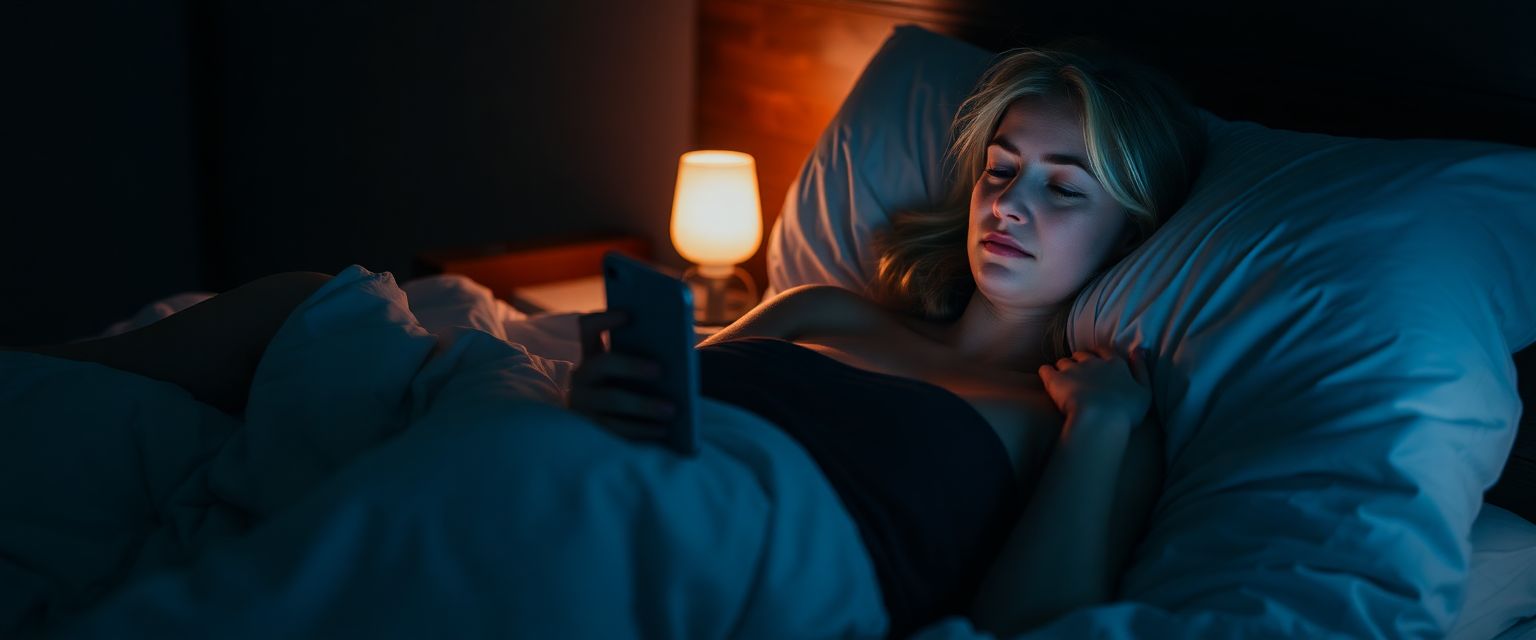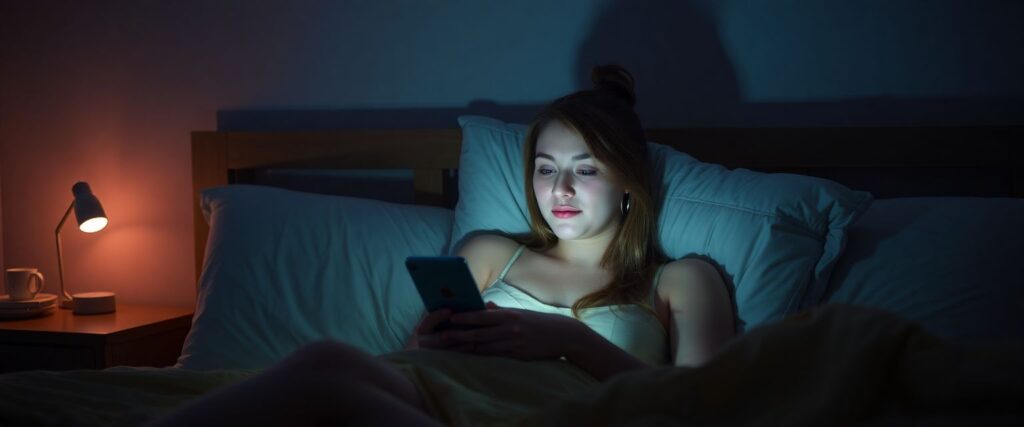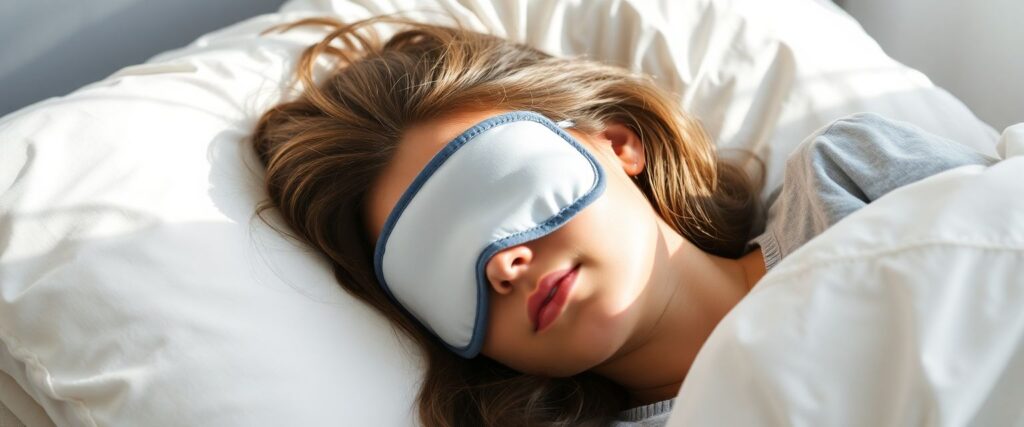
Insomnia vs. Bad Sleep Schedule: Wide Awake at 3am?
Night after night of tossing, turning, and staring at the clock can drive anyone up the wall. But how do you know if you’re experiencing genuine insomnia or if you’ve fallen into a habit of poor sleep practices?
As someone who’s battled restless nights and poured countless hours into studying sleep science, I understand how confusing it can be to pinpoint what’s truly hindering your sleep. In this article, we’ll do a deep dive into insomnia vs. bad sleep schedules—what sets them apart and, more importantly, how to tackle each issue head-on.
We’ll look at signs, symptoms, and proven methods (like Cognitive Behavioral Therapy for Insomnia) to revamp your evenings. Plus, if you’re searching for a natural supplement approach, we’ll chat about why Sleep Guard Plus might be worth a look. Let’s begin your journey to better nights and brighter mornings.
This article is for educational purposes only and does not replace professional medical advice. Always consult a qualified healthcare professional about any medical concerns.
Insomnia vs. Bad Sleep Schedule: Why Knowing the Difference Is Vital
Before we tackle solutions, it’s crucial to understand the difference between clinical insomnia and a bad sleep schedule. While both can leave you groggy and irritable, the root causes often differ.
- Insomnia is a genuine sleep disorder characterized by a persistent inability to fall or stay asleep, despite having a proper environment and plenty of opportunity for rest.
- A bad sleep schedule usually arises from inconsistent routines and lifestyle factors—like scrolling through social media in bed, irregular bedtimes, or late-afternoon caffeine.
Recognizing which category you fall into will streamline your path to better sleep. According to Better Health Channel, making changes in sleep hygiene may help improve your sleep quality. But for those with true insomnia, professional strategies such as Cognitive Behavioral Therapy for Insomnia (CBT-I) may be necessary.
Top Signs and Symptoms: How to Know If You Have Insomnia
If you’ve been lying awake at night asking yourself, “Is this insomnia or am I just a night owl?” keep an eye out for these telltale signs:
- Difficulty Falling Asleep or Staying Asleep
According to Medline Plus, people with a sleep disorder often take more than 30 minutes to drift off. They may also wake up multiple times in the night and struggle to return to sleep. - At Least Three Nights a Week for Three Months
True insomnia is typically defined by ongoing sleep difficulties for at least three nights each week, continuing for three months or more. - Daytime Impairment
Fatigue, mood swings, and poor concentration are big red flags. If your energy and productivity nosedive, it’s a strong sign your nighttime rest isn’t doing its job. - Adequate Sleep Opportunity
One of the clearest markers of insomnia is failing to sleep even when your schedule allows for 7-9 hours of rest in a comfortable environment. If you can’t sleep despite perfect conditions, it’s time to investigate further. - Sleep Anxiety
Many people with insomnia dread bedtime. The cycle of worry (“Will I sleep tonight?”) can exacerbate the problem and perpetuate insomnia. Cleveland Clinic notes that sleep anxiety is a common characteristic of insomnia.
Recognizing a Bad Sleep Schedule: Common Habits To Avoid

A chaotic sleep pattern can mimic insomnia, but it’s often rooted in avoidable habits. Look for these indicators:
- Irregular Bedtimes and Wake Times
If bedtime ranges wildly—midnight one day and 2 AM the next—your internal clock (circadian rhythm) can get out of whack. Sleep Education suggests going to bed and waking at the same time daily to help your body anticipate sleep. - Excessive Napping
Napping for over 30 minutes or late in the afternoon can push your bedtime later. While short naps may recharge you, extensive dozing can undermine nighttime sleep. - Late-Night Caffeine or Alcohol
A strong espresso at dinner or a large glass of wine before bed might sound soothing, but both can sabotage your ability to reach deep, restorative stages of sleep. - Weekend “Catch-Up”
Sleeping in until noon on weekends can give a short-term fix, but you’ll likely “jet lag” yourself and disrupt Monday’s routine all over again. - Excessive Screen Time
We’ve all been there: You hop into bed and open your phone, only to discover that an hour has vanished. Devices emit blue light, which Harvard Health warns can suppress melatonin production, making it harder to fall asleep.
Become a Sleep Detective: How to Analyze Your Sleep Patterns
To figure out whether you’re dealing with insomnia or a poor sleep schedule, you have to don your detective hat and analyze your own sleeping habits.
Keep a Sleep Diary
Record bedtimes, how long it takes to fall asleep, nighttime awakenings, daytime energy, and even caffeine intake for two weeks. By tracking these variables, patterns often become clearer. If you notice you always struggle after a late workout or an evening coffee, you may have found part of the culprit.
Assess Your Environment
- Temperature: Aim for a cool setting, between 60-67°F (15-19°C).
- Light: Darkness matters. Consider blackout curtains or a sleep mask.
- Noise: Use earplugs or white noise machines if environmental sounds wake you up.
- Comfort: A supportive mattress and pillows are essential.
Examine Your Mindset
Are you anxious around bedtime? Do you ruminate over daily stressors as you try to drift off? This mental tug-of-war often points to insomnia. Johns Hopkins Medicine recommends techniques like mindfulness meditation to reduce nighttime worry.
Best Strategies to Fix Your Sleep

Whether you suspect insomnia or a disrupted routine, certain foundational practices can dramatically improve your nightly rest. Consider starting with these changes:
Set a Consistent Sleep Schedule
Go to bed and wake up at roughly the same time daily, including weekends. This helps train your body’s circadian rhythm. If possible, stick to that schedule within a 30-minute window.
Create a Calming Bedtime Routine
Design a “wind-down” ritual—like reading a physical book, doing gentle yoga, or listening to soothing music—for 30-60 minutes before lights out. By repeating the same steps, you cue your brain that it’s time to switch off.
Limit Electronics Before Bed
Bright screens emit blue light, which reduces melatonin production. If you must use devices, use blue light filters or night mode.
Recommended Video
Check out this short video by Dr. Matthew Walker for quick, practical tips on optimizing your evening routine. Dr. Walker is a prominent sleep researcher who underscores how small nighttime changes can lead to major improvements in sleep quality.
Watch Your Diet
- Caffeine Cut-Off: After 2 PM, switch to herbal teas or water.
- Moderate Alcohol: A nightcap can fragment your sleep cycle, resulting in restless awakenings.
- Early Dinners: Large meals near bedtime can cause discomfort. Aim to finish dinner 2-3 hours before sleeping.
Want more details on which foods can help you rest easier? Check out my full guide here
Move More, but Mind the Timing
Regular exercise can enhance sleep quality, but strenuous workouts close to bedtime might rev up your adrenaline. Try to finish vigorous activities at least three hours before lights out. Evening walks or gentle stretching are less disruptive.
Stress Management
Anxious thoughts can keep you up into the early hours. Consider journaling, meditation, or progressive muscle relaxation to calm a racing mind. These techniques can help quell stress, a known contributor to insomnia.
Explore Natural Sleep Supplements
If you’re open to a natural approach to support better sleep, consider learning more about Sleep Guard Plus. Many individuals report improvements in sleep onset and quality when combining a balanced lifestyle with science-backed supplements.
When to Seek Professional Help: Spotting Severe Sleep Disorders
If you’re diligently applying good sleep hygiene yet still find yourself wide awake at 3 AM night after night, it may be time to speak with a healthcare professional. Warning signs include:
- Persistent sleep difficulties despite lifestyle changes
- Severe daytime fatigue affecting your job or relationships
- Reliance on prescription or over-the-counter sleep aids
- Coexisting health issues that could impact sleep (e.g., chronic pain, anxiety disorders)
A sleep specialist can evaluate your case—potentially with a polysomnography (sleep study)—to rule out conditions like sleep apnea or restless legs syndrome. A formal diagnosis can help tailor an effective treatment plan.
Best Treatment Options for Insomnia: Medications, CBT, and More
If you receive an official insomnia diagnosis, don’t lose hope. There are multiple avenues for treatment, each proven to help you rest easier.
Cognitive Behavioral Therapy for Insomnia (CBT-I)
Often cited as the gold standard for chronic insomnia, CBT-I helps you identify and replace thoughts and behaviors that keep you up. Key components include:
- Sleep Restriction Therapy: Temporarily limiting the time you spend in bed to boost sleep efficiency.
- Stimulus Control: Strengthening the bed-sleep connection by leaving the bedroom if you’re awake too long.
- Relaxation Techniques: Tools like deep breathing and progressive muscle relaxation to quiet the mind.
- Cognitive Restructuring: Challenging negative beliefs (“I’ll never sleep again!”) about sleep.
Medications
In some instances, short-term use of prescription sleep aids (like zolpidem or eszopiclone) might be appropriate. However, medications are rarely a permanent solution and come with potential side effects, so it’s essential to consult a physician.
Alternative Therapies
Methods like acupuncture, light therapy, or specific herbal supplements (such as valerian root or chamomile) can offer relief. While research on these is varied, they may be beneficial when used under the guidance of a healthcare provider.
Mastering Your Sleep Routine: A Step-by-Step Path to Quality Sleep

Real, lasting change in your sleep quality may require a bit of experimentation, patience, and perseverance. Think of it like any skill—you won’t master it overnight, but you will see results if you stick with it.
- Start Small: Tackle one or two sleep hygiene habits at a time.
- Stay Consistent: Maintain your schedule, even if progress feels slow at first.
- Reach Out: If you’re stuck, consider getting professional advice for personalized guidance.
Good sleep is a cornerstone of both physical and mental health. Whether your main issue is an erratic sleep schedule or genuine insomnia, the key is to recognize the cause, adopt effective changes, and keep refining your approach until you find what truly works.
CONCLUSION: Your Action Plan for Conquering Insomnia and Restoring Good Sleep
Nailing down whether you’re dealing with genuine insomnia or just a disrupted routine doesn’t have to be an endless mystery.
By acting as your own sleep detective—jotting down your patterns, optimizing your environment, and introducing proven strategies like consistent bedtimes and mindful stress management—you’re already on the path to sounder sleep.
If lingering doubts remain or insomnia-like symptoms persist, consider consulting a sleep professional for targeted help. And remember, there’s no one-size-fits-all solution.
Whether it’s Cognitive Behavioral Therapy for Insomnia or trying a well-reviewed supplement such as Sleep Guard Plus, your ultimate goal is to find a routine that works for you.
Remember: A perfect night’s sleep is within reach. Start small—pick one tactic, apply it diligently, and watch your nights transform. The power to reclaim your sleep is in your hands.
FREQUENTLY ASKED QUESTIONS
What are the main symptoms of insomnia?
The primary symptoms of insomnia include difficulty falling asleep, staying asleep, or both, despite having adequate opportunity for sleep. People with insomnia often experience daytime fatigue, mood disturbances, and difficulty concentrating. Consult a health professional if you suspect insomnia.
How many hours of sleep do I need each night?
Most adults need between 7-9 hours of sleep per night. However, individual needs can vary. The key is to wake up feeling refreshed and alert, rather than focusing solely on a specific number of hours.
Can stress cause insomnia?
Yes, stress is a common cause of both acute and chronic insomnia. High stress levels can make it difficult to relax and fall asleep, and may also lead to nighttime awakenings.
Why do I lay in bed for hours and can’t sleep?
If you lay in bed for hours and can’t sleep it can be due to inconsistent sleep schedules or excessive screen use before bed. Try a calming bedtime routine, avoiding electronic devices. If restlessness remains, consult a doctor.
Why am I having trouble sleeping at night all of a sudden?
If you’re having difficulty sleeping at night all of a sudden then this may happen because of sudden stress, a change in routine, or underlying health issues. Identify new lifestyle factors, reduce caffeine, and use relaxation techniques. Seek medical advice if problems continue.
What is the difference between insomnia and a bad sleep schedule?
The difference between insomnia and a bad sleep schedule lies in the cause. Insomnia is a sleep disorder, while a bad sleep schedule is often due to lifestyle habits. Insomnia persists despite good conditions; poor routines are often fixable with changes.
What is the difference between poor sleep and insomnia?
The difference between poor sleep and insomnia is that poor sleep can be temporary or habit-based, while insomnia is a diagnosable condition. If your sleep doesn’t improve with better habits, you may have insomnia.
How many hours of sleep qualifies as insomnia?
How many sleep hours you get before it qualifies as insomnia isn’t strictly about hours, but about ongoing difficulty falling or staying asleep. Insomnia is diagnosed based on symptoms, not just sleep duration. A doctor can confirm if you meet the criteria.
How do you confirm that you have insomnia?
To confirm if you have insomnia typically involves tracking sleep patterns, identifying persistent issues, and undergoing a medical evaluation. Doctors may suggest a sleep diary or study to make an official diagnosis.
Is it bad to use my phone before bed?
Using your phone before bed can interfere with sleep because of the blue light emitted by the screen, which can suppress melatonin production. Additionally, engaging with social media or work emails can be mentally stimulating, making it harder to relax and fall asleep.
What does it mean when you awake at 3am?
Being awake at 3am can indicate stress, anxiety, or disrupted sleep cycles. Check bedtime habits, avoid stimulants near bedtime, and consider talking to a professional if it’s frequent or distressing.
How long does it take to fix a bad sleep schedule?
The time it takes to reset your sleep schedule can vary, but most people can adjust their sleep patterns within 1-2 weeks of consistently following a new schedule and practicing good sleep hygiene.
Can napping make insomnia worse?
While short naps (20-30 minutes) earlier in the day can be useful, long or late-afternoon naps can interfere with nighttime sleep and potentially worsen insomnia symptoms.
What foods can help improve sleep?
Certain foods may promote better sleep, including those rich in tryptophan (e.g., turkey, eggs, cheese), magnesium (e.g., nuts, seeds, leafy greens), and melatonin (e.g., tart cherries, bananas, oats). See what foods can help with your sleep by reading this article here.
8. Is it normal to wake up during the night?
Brief awakenings during the night are normal and typically don’t indicate a sleep problem. However, if you have difficulty falling back asleep or wake up often, it may be a sign of insomnia or another sleep disorder.
9. Can exercise help with insomnia?
Regular exercise can improve sleep quality and help reduce insomnia symptoms. However, it’s important to time your workouts properly, as vigorous exercise too close to bedtime can make it harder to fall asleep.
Health Disclaimer
The information provided in this article is for educational and informational purposes only and is not intended as health or medical advice. It should not be used to diagnose, treat, or replace professional medical guidance. Always consult a qualified healthcare professional regarding any questions you may have about your medical condition, diet, or overall health. Any application of the material in this article is at the reader’s discretion and sole risk. The author and publisher disclaim any liability arising directly or indirectly from the use of this information.
